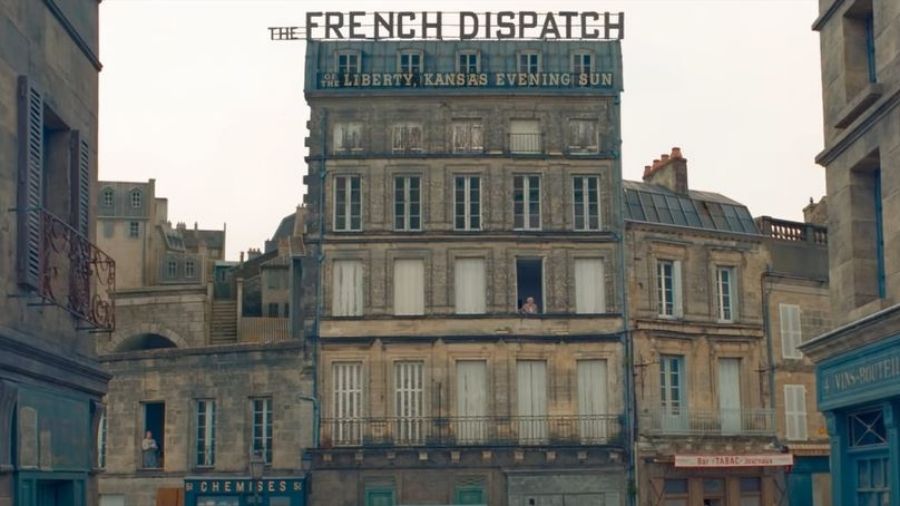Dual review: ‘Marshall’ and ‘Professor Marston and the Wonder Women’
Oct 13, 2017, 8:35 AM
This weekend brings two bio-pics to the big screen, one about the early life of a towering figure in American jurisprudence, the other an origin story about a towering figure in American pop culture.
More movie reviews by Tom Tangney
“Marshall” is a dutiful look at a formative stage in the professional life of Thurgood Marshall. Decades before he became the first African-American Supreme Court Justice, Marshall took on a now long forgotten case of a black chauffeur who was accused of raping his employer, a white socialite.
“Mr. Spell, I’m Thurgood Marshal with the NAACP.”
“You can go, I’ve got no money for lawyers.”
“Anybody ask you for money? The NAACP, we’re not like more lawyers. We only represent innocent people; people accused because of their race. That’s our mission. So I need to know this: did they do what they said you did?”
“I never touched that woman.”
“OK, Joseph, you’ve got lawyers now.”
In the wake of Charlottesville and the sudden higher profile of certain white supremacists, “Marshall” serves as a timely reminder of what African-Americans have been up against in this country. And it’s refreshing to see a young, dynamic Thurgood Marshall, because most of us know him only as the jowly, heavy-set older man who spent decades on the Supreme Court.
But the movie suffers from its paint-by-numbers approach to the case. It’s conventional to a fault, with one obvious and predictable development after another. There are no real surprises because even the surprises are telegraphed long before they come to pass.
“Marshall” is not a bad movie, but it’s in no way as great as its inspiration.
‘Professor Marston’ is full of surprises
“Professor Marston and the Wonder Women,” on the other hand, is full of surprises. Who knew that the creator of “Wonder Woman” was a disgraced Harvard-educated psychology professor looking for an outlet for his radical ideas?
“A comic book, Bill?”
“Well, it’s perfect. I’m going to inject my ideas right into the thumping heart of America.”
“She’s an Amazon princess that lives on an island of all woman.”
“Paradise Island.”
“And the man crash lands on the island.”
“Uhh, yeah. Steve Trevor the spy.”
“And she wears a burlesque outfit?”
“Well, it’s athletic.”
“And silver bracelets?”
“They deflect bullets.”
“And all her friends and helpers are sorority girls who have spanking parties and everybody fights Nazis and rides in an invisible plane?
“Yes.”
“Nobody, and I say this with all the compassion and truth in my heart, nobody will ever publish this.”
“Wonder Woman,” of course, was not only published, it became a huge hit. In his comic book, William Marston introduces his controversial idea about the superiority of women as world leaders.
“I write what I see about women I know … Beautiful, brunette, ferocious. They have the power within themselves to create their own destiny.”
“What is powerful about a woman running around in a bathing suit?”
It’s that skimpy outfit and the comic’s plentiful bondage scenes that drew the ire of the social conservatives of the day. Marston had worked out an elaborate psychological and social theory that posited “submission to a loving authority” as the key to peace in the world — and he hinted at that time and again in the Wonder Woman comics.
And it wasn’t just his comic book that drew complaints. His personal life was every bit as radical as his philosophy. Marston and his equally brilliant wife, Elizabeth, shared their love life with Olive, one of the professor’s students. The three of them lived and loved together, raising four children among them. And this in the 1930’s and 40’s!
Elizabeth and Olive were the inspiration for Wonder Woman. And the movie suggests that Wonder Woman is given a secret identity in the comics to parallel the secret lives of her creator and the women who inspired her.
“Professor Marston and the Wonder Women” gives too short a shrift to the comic books themselves, but still, it provides a surprisingly glossy and full-bodied look at the very unusual romantic lives of three very independent-minded individuals.













